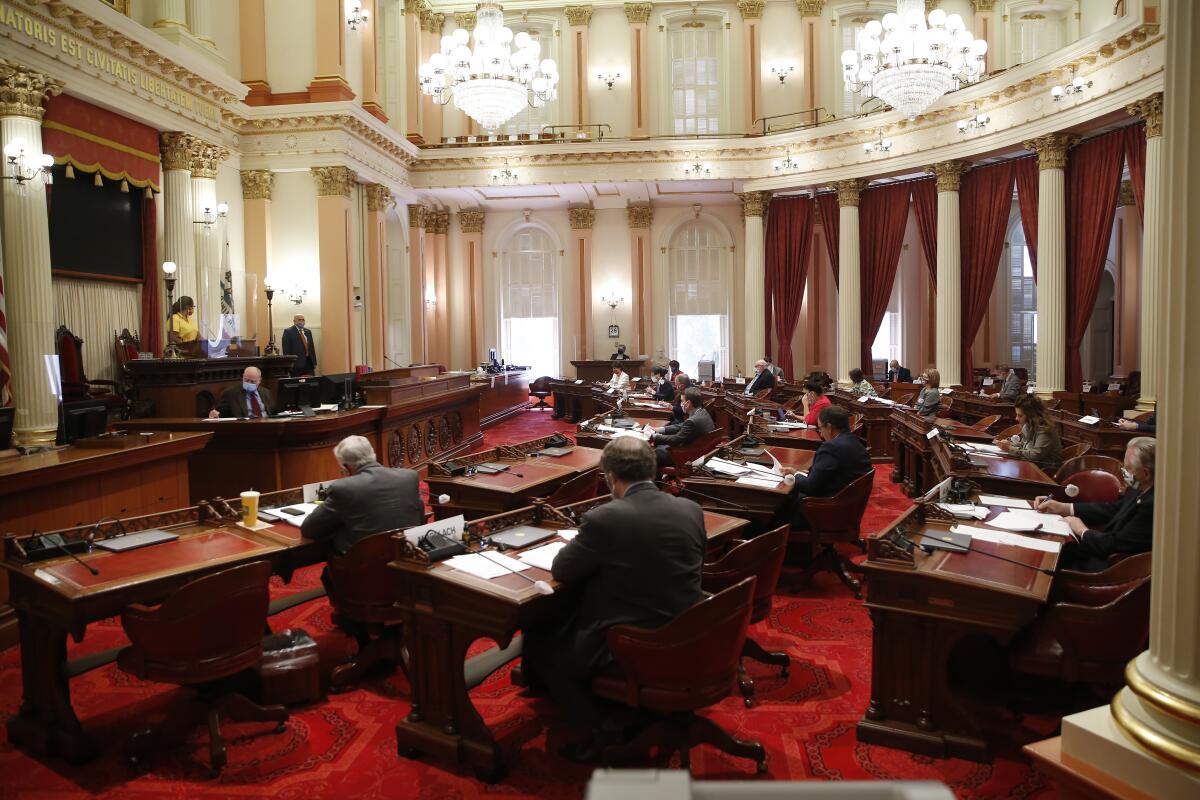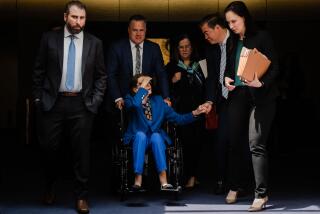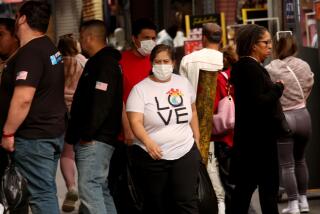California Senate Republicans under COVID-19 quarantine, not allowed in state Capitol

SACRAMENTO ā Nearly every Republican in the California Senate was barred from the state Capitol on Thursday and required to vote remotely for the remainder of session after contact tracing showed that a lawmaker who tested positive for COVID-19 had exposed the others.
The state Senate abruptly canceled session on Wednesday after learning that Sen. Brian Jones (R-Santee) tested positive for the virus. Jones is now under quarantine orders along with nine Republican lawmakers he had personal contact with in recent days. Several Senate staffers are also under quarantine, Senate officials said.
āUnfortunately, the nature of the gathering that resulted in the exposures was such that virtually every member of the Republican Caucus is now unable to enter the Capitol without violating public health orders,ā Senate President Pro Tem Toni Atkins (D-San Diego) said in a statement. āI know our Republican colleagues are disappointed not to be on the floor or in their offices today, but I also know they would never knowingly put the health and safety of others at risk.ā
Jones was in the Capitol this week before being tested along with several other lawmakers in recent days. Lawmakers of both parties met for a floor session on Monday, while Senate Republicans including Jones met in person for a caucus meeting on Tuesday. Some Republicans also met in person for a private gathering on Monday night. Senate Democrats stopped holding in-person caucus meetings in March, according to Atkinsā office and several senators.
The only Republican who is not subject to the quarantine is Sen. Jim Nielsen of Gerber, who said he skipped the Republican caucus meeting and a dinner with his GOP colleagues this week.
Atkins said the lawmakers who were exposed will continue to debate and vote from their Sacramento residences in order for the house to wrap up the final days of the legislative session on Monday. However, Republican senators said they had not yet been told how they would vote remotely and were not able to do so on Thursday.
Lawmakers have discussed remote voting or a hybrid model of in-person and virtual sessions, but there has been strong opposition to those accommodations, including from Jones. In May, Jones asked the Legislatureās lawyers to opine on whether remote voting is constitutional. Legislative Counsel wrote that the California Constitution calls for a body to be assembled and for the public to be able to directly observe, but noted that a court may defer to the Legislatureās judgment in a time of emergency.
In the May letter, Legislative Counsel wrote that āwe cannot counsel the Legislature to engage in remote legislating with a sense of security that such a practice would ultimately be upheld by the courts.ā However, Diane Griffiths, general counsel for the Senate president pro tem, said Thursday that the Senate is confident that remote voting would be upheld if challenged because of the āprecautions weāve taken and the fact that weāve waited until it was actually necessary.ā
Due to the pandemic, the Senate has allowed remote voting for bills being considered in committee hearings if the voting was conducted from district offices, but did not allow proxy votes during floor sessions. The Assembly has allowed lawmakers at high risk for contracting the virus to submit proxy votes to the houseās leaders.
Under California Department of Public Health guidelines, Republican senators will not be allowed to return to the Capitol until after the end of the session Monday, even if they test negative for the virus. On the Senate floor Thursday, Nielsen questioned Atkinsā decision and said his colleagues should be allowed to return to the Senate in person if they test negative for COVID-19.
Nielsen also questioned whether Atkins had equally examined exchanges Jones may have had with Democrats.
āThere is a hypocrisy of majority that sometimes borders on arrogance,ā Nielsen said. āIām disappointed in the institution.ā
Atkins pushed back against the implication that her decision was politically motivated, saying she would have done the same thing if there were Democrats who needed to be quarantined. Atkins said she worked with experts to find solutions and that it was regretful that Republicans were not able to be on the Senate floor.
āThis is the position we did not want to find ourselves in, which is why you have heard me, again and again, plead with people to follow the guidelines,ā Atkins said.
Secretary of the Senate Erika Contreras sent a memo to all senators and staff on Aug. 21 that included a schedule for floor sessions in the final week of the year and described the houseās safety guidelines. One of the rules was ādo not participate in social gatherings with people outside of your own household.ā
The entire Senate held a virtual Zoom meeting Monday night to pay tribute to their colleagues who are leaving office at the end of the year. State Sen. Brian Dahle (R-Bieber) said he and Senate Minority Leader Shannon Grove (R-Bakersfield) went over to the Sacramento residence of state Sen. Mike Morrell (R-Rancho Cucamonga), who is among the departing lawmakers, during the tribute.
Dahle said he ate cake, kept a distance from the other lawmakers and that Jones did not attend.
āThere was no watch party,ā Dahle said, addressing rumors of a larger gathering.
Dahle also participated in the in-person caucus meeting Tuesday with Jones and others. A nurse called him on Wednesday and said he was identified as someone who came in contact with Jones and advised him to stay home.
On Thursday, Dahle watched the Senate floor session on his iPad at his Sacramento home. He said no one had contacted him about how to vote remotely.
Prior to his quarantine order, Dahle has been vocal about his belief that remote voting is unconstitutional and said he hasnāt decided if heāll vote from home. He wants the Senate to let him quarantine in his office and then visit the floor at the end of the day to vote on all of the pending bills under an āon-callā system the lower house deploys to allow lawmakers who are not present at the time of a vote to add on later.
āWe do it all the time,ā Dahle said. āThatās what I thought was fair. I want to participate. I want to serve my people. Thatās the goal.ā
The Legislature has dealt with disruptions since March, when leaders in both houses decided to move up and extend a spring recess to lessen the risk of spreading the virus. Then, during summer recess, both houses delayed a return to the Capitol last month.
Lawmakers have been required to wear masks and maintain a safe distance from each other at the Capitol, while visitors in the building had to undergo a health screening. On Wednesday, both the Senate and Assembly announced that staffers and lawmakers would also be required to have their temperature checked before entering the building. Previously, lawmakers and staff were asked to take their own temperatures before leaving home, while there were strict limits on how many staffers could work in each office at one time.
Wednesday marked the third known COVID-19 diagnosis for a state lawmaker after two Assembly members tested positive last month.
Last month, Assemblyman Tom Lackey (R-Palmdale) was hospitalized following COVID-19 complications, while Assemblywoman Autumn Burke (D-Marina del Rey) also tested positive. Several staffers also tested positive around the same time as the Legislature was meeting to pass the state budget.
Senate officials said an officer of the California Highway Patrol, who had last been inside the Capitol on Monday, had also tested positive for the virus. The governorās office said the officer did not work in Gov. Gavin Newsomās security detail.
Times staff writer John Myers contributed to this report.
More to Read
Sign up for Essential California
The most important California stories and recommendations in your inbox every morning.
You may occasionally receive promotional content from the Los Angeles Times.












